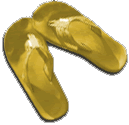The Church and Eucharistic Mystery
 The Eucharistic mystery is a most wonderful sacrament that has become misunderstood and at times reduced to a mere shadow of its boundless sacramental significance. Stripped of its meaning it can become a mere fraternal banquet. Understood in its apostolic succession, it is the greatest gift Jesus left us in the church.
The Eucharistic mystery is a most wonderful sacrament that has become misunderstood and at times reduced to a mere shadow of its boundless sacramental significance. Stripped of its meaning it can become a mere fraternal banquet. Understood in its apostolic succession, it is the greatest gift Jesus left us in the church.
 The Second Vatican Council rightly proclaimed that the Eucharistic sacrifice is “the source and summit of the Christian life. …For the most holy Eucharist contains the Church's entire spiritual wealth: Christ himself, our Passover and living bread. Through his own flesh, now made living and life-giving by the Holy Spirit, he offers life to men.” (Ecclesia De Eucharistia, John Paul II).
The Second Vatican Council rightly proclaimed that the Eucharistic sacrifice is “the source and summit of the Christian life. …For the most holy Eucharist contains the Church's entire spiritual wealth: Christ himself, our Passover and living bread. Through his own flesh, now made living and life-giving by the Holy Spirit, he offers life to men.” (Ecclesia De Eucharistia, John Paul II).
 Saint John Paul II gives us this witness: “During the Great Jubilee of 2000 I had an opportunity to celebrate the Eucharist in the Cenacle of Jerusalem where, according to tradition, it was first celebrated by Jesus himself, in the Upper Room.
Saint John Paul II gives us this witness: “During the Great Jubilee of 2000 I had an opportunity to celebrate the Eucharist in the Cenacle of Jerusalem where, according to tradition, it was first celebrated by Jesus himself, in the Upper Room.
“It is there that Christ took bread, broke it and gave it to his disciples, saying: ‘Take this, all of you, and eat it: this is my body which will be given up for you.’ Then he took the cup of wine and said to them: ‘Take this, all of you and drink from it: this is the cup of my blood, the blood of the new and everlasting covenant. It will be shed for you and for all, so that sins may be forgiven.’
“I am grateful to the Lord Jesus for allowing me to repeat in that same place, in obedience to his command: ‘Do this in memory of me,’ the words which he spoke two thousand years ago.”
The Church was born of the paschal mystery. For this very reason the Eucharist, the sacrament of the paschal mystery, stands at the centre of the Church's life. It was in the Garden of Olives where Christ in his agony, began shedding drops of blood, an outpouring that would then be completed on Golgotha, shedding his blood for our eternal redemption.
Every Eucharistic sacrifice or Mass is the unbloody reenactment of Calvary and a sharing of the body and blood of Christ for our spiritual nourishment and eternal salvation. The challenge to all Christian churches is to understand this sacred act and to work for unity as the one true church of God.
It is no coincidence that on the night before his death, Jesus prayed that prayer for unity among all Christians: “That they all may be one; as thou, Father, art in me, and I in thee, that they also may be one in us: that the world may believe that thou hast sent me” (John 17:21-23).
To help us live and understand the Eucharistic mystery, let me make a comparison between us and Mary, Mother of Jesus. Our life, like that of Mary, can be a Magnificat, a song of praise. Just as Mary bore Jesus in her womb, we hold Jesus in our hearts and in our spiritual selves. “Whoever eats my flesh and drinks my blood remains in me, and I in them” (John 6:56).
Truly, when we receive Jesus into our being, God has “lifted up the lowly,” as Mary’s Magnificat sings. The Lord has looked on us with favour. He has shown us his mercy, and the strength of his arm. He has filled us with good things. (Luke 1:46-55). The Eucharist has been given to us so that our life, like that of Mary, may become completely a Magnificat!
(593 words)

